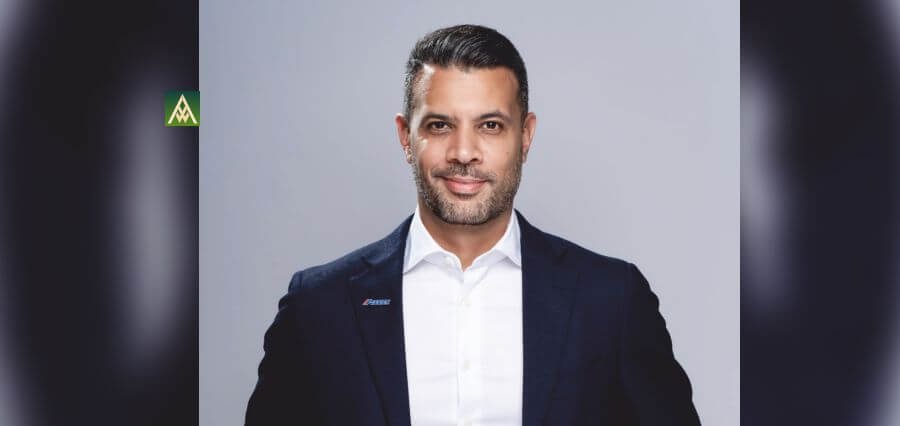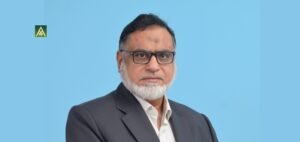Transforming Modern Construction with Eco-Friendly Building Materials!
From towering skyscrapers to the roads, we travel daily and with increasing demands for sustainable practices, leaders in the cement sector are often regarded as the backbone of modern infrastructure who play a pivotal role in shaping our built environment.
They know how to cope with the challenge of reducing carbon footprint while maintaining efficiency and quality. This dual focus on environmental responsibility and operational excellence is crucial for the industry’s future, as stakeholders increasingly prioritize eco-friendly solutions.
As environmental problems get international attention, there has never been a greater need for more environmentally responsible cement production technologies.
In addition to addressing climate change, Rafael Villalona pushes the limits of building functioning and design by redefining how we view and use materials in construction. As the CEO of Cemex UAE, embodies the essence of transformative leadership in this industry.
Known for his serious demeanor in the workplace, he reveals a compassionate side that fosters a supportive atmosphere outside of professional settings. This duality enables him to cultivate a growth mindset within his teams, valuing both teaching and learning as essential components of success.
His results-driven approach emphasizes excellence while nurturing future leaders, striking a balance between accountability and fairness.
From overcoming toxic work cultures to steering a company away from bankruptcy, Rafael’s experiences have shaped his commitment to building exceptional leadership teams.
Today, he continues to drive innovation in the cement industry, focusing on sustainable practices and advanced technologies that redefine operational standards while prioritizing employee engagement and environmental responsibility.
Let’s know more about his journey:
Leadership Insights from Rafael Villalona
Rafael describes his leadership style as results-driven and focused on excellence. He emphasizes the importance of developing future leaders while valuing the human element in achieving success. He sets high standards and holds his team accountable, which some may perceive as toughness; however, he aims to be fair and balanced.
In the workplace, he maintains a serious demeanor to drive performance, yet he reveals a lighter, more caring side outside of work. By leading by example, he fosters a growth mindset, valuing both teaching and learning for himself and his team.
Defining Career Moment
Rafael’s career was profoundly shaped when he became General Manager for Jamaica at the age of 28, marking the beginning of his journey as a crisis leader. He faced significant challenges, including toxic work cultures and price wars, ultimately saving a company from bankruptcy.
This experience taught him that people are crucial in overcoming crises. Guided by a mentor who emphasized strong leadership, he learned that mediocrity undermines culture. This pivotal moment solidified his commitment to building exceptional senior leadership teams and fostering respectful, empowering environments for all employees, including blue-collar workers.
Overcoming Challenges
Rafael faced his greatest challenge as CEO while transforming UAE operations during the pandemic. He inherited a struggling environment marked by low sales, disengaged staff, and financial instability.
To address these issues, he prioritized the human element by restructuring leadership and enhancing communication, which significantly improved employee engagement, raising the eNPS from negative to +72. He then focused on efficiency by optimizing equipment and closing underutilized locations.
UAE’s productivity soon became world-class within the Cemex network. He then shifted his product portfolio to environmentally friendly, low-carbon solutions, now accounting for over 90% of sales, and launched a new chemical production division, achieving vertical integration and custom solutions for our operations.
Alongside revenue doubling by over $70 million, he optimized financials by addressing overdue payments, improving terms, and enhancing cash flow. This holistic transformation led to positive EBITDA, FCF, CVA, and record-low working capital, all accomplished under unprecedented market pressures.
Innovation in the Cement Industry
Rafael emphasizes that innovation is crucial for transforming the cement industry, serving as a foundation for CEMEX’s ongoing evolution. He highlights advancements such as the development of low-carbon solutions and the integration of specialized chemicals to enhance product performance. Additionally, he points out the implementation of AI-powered cameras for safety monitoring, showcasing innovation as a strategic advantage throughout operations.
Looking forward, he envisions that AI and machine learning will play pivotal roles in improving plant efficiency through predictive and preventive maintenance, enabling proactive issue resolution. These technologies will facilitate complex data analysis, yielding real-time, actionable insights.
A key focus for him is achieving a carbon net-zero footprint, aligning with industry priorities. He anticipates the emergence of AI-led systems that promote sustainability by reducing energy consumption and integrating eco-friendly materials into processes. Ultimately, he believes that digital technology and environmental innovations will be essential for ensuring the cement industry’s resilience and relevance in the future, driving progress toward a more sustainable construction landscape. His vision reflects a commitment to leveraging innovation as a means to address pressing challenges while enhancing operational effectiveness within the industry.
Commitment to Sustainability
Rafael is deeply passionate about various sustainability initiatives within the cement industry. Among these, he prioritizes reducing the clinker factor and promoting the transition to blended cements, which significantly lowers CO₂ emissions per ton produced.
This shift is crucial for achieving substantial environmental progress without sacrificing product quality. He advocates for the use of recycled aggregates, alternative water sources, and waste transformation, viewing these practices as essential components of a sustainable future.
He believes that blended cements can redefine production practices in the industry, making them more environmentally friendly. By focusing on these initiatives, he aims to lead the cement sector toward a more sustainable and responsible future, aligning with global efforts to combat climate change.
Fostering Team Collaboration
Rafael promotes collaboration within his team by fostering a culture of creativity, ownership, and safety. He encourages an environment where team members can learn from failures while celebrating successes. Everyone is aligned with a shared vision, referred to as their “north star,” ensuring that individual goals do not conflict with collective objectives.
He prioritizes group success over individual achievements, which strengthens teamwork and keeps everyone focused on contributing to overall progress. This collaborative approach not only enhances team dynamics but also drives performance and engagement across the organization.
Vision for the Future of Cement
Rafael envisions significant advancements in the cement industry over the next five years, highlighting its potential to become less reliant on hard-to-abate practices. He anticipates an increase in carbon-neutral production plants and a shift away from ordinary Portland cement (OPC) and high-clinker products. The adoption of low-carbon technologies, such as LC3, will help reduce the industry’s carbon footprint where feasible.
Furthermore, he foresees greater integration of advanced robotics, AI, and automation to enhance efficiency and sustainability. As regulations tighten and carbon taxes are implemented, companies prioritizing sustainability will find growth opportunities. He believes these changes will set new standards for a more sustainable cement industry, ultimately proving that it can thrive while addressing environmental challenges.
Key Mentor
Rafael credits Carlos Gonzalez as a pivotal mentor in his career. A seasoned executive and exceptional P&L manager, Gonzalez has successfully navigated challenges globally. He has learned invaluable lessons from him, not only in business management but also in personal life.
Observing Carlos’s leadership style has provided insights into crisis management, strategic positioning, and fostering a positive work culture.
One crucial lesson he absorbed is the importance of prioritizing a healthy work environment over mere performance metrics. He learned that even top performers can be detrimental if they disrupt team culture.
Additionally, he emphasizes that leaders must be well-versed in their numbers to make informed decisions, as ignorance can jeopardize team success. These lessons have become guiding principles in his leadership journey.
Maintaining Work-Life Balance as a CEO
Rafael highlights the importance of work-life balance as a CEO by prioritizing quality time with his family. He ensures that each year includes two family vacations, during which he limits work commitments to about 10% of his time, allowing him to be fully present. Weekends are dedicated to his wife and children, filled with activities like exploring the city, dining out, and engaging in sports. He believes that nurturing relationships with family and friends is essential for personal well-being and professional success.
In addition to personal commitments, he actively fosters a positive corporate culture that enhances employee performance. He engages with a work climate committee and maintains open lines of communication with employees at all levels.
By recognizing achievements and balancing positive experiences against negative feedback, he cultivates an environment where employees feel valued and motivated. This holistic approach not only strengthens team dynamics but also contributes to the overall success of the organization, demonstrating that a healthy work-life balance is vital for both personal fulfillment and professional achievement.
Ensuring Company Adaptability
Rafael emphasizes the importance of adaptability in a constantly changing environment. To maintain agility, he encourages leaders to think outside the box by exploring new approaches, introducing innovative value propositions, and adjusting product portfolios.
Staying attuned to emerging trends and technologies is crucial, as is the ability to quickly test ideas, learn from failures, and scale successful innovations. Research and development, along with strategic capital expenditure, are vital components of this strategy.
He prioritizes recognizing and rewarding teams that achieve expected returns on investment, as this recognition motivates them to pursue further breakthroughs. By fostering a culture of innovation and responsiveness, he ensures that the company remains competitive in a rapidly evolving landscape.
Personal Motivation as CEO
Rafael is driven by a natural competitiveness that compels him to benchmark and push boundaries to achieve best-in-class status. However, his greatest motivation stems from the human element of leadership.
He finds immense satisfaction in witnessing the growth of his leaders, helping them reach new heights, and supporting them in realizing their full potential. He believes that at the end of his career, it will be the memories and relationships built along the way that matters most, rather than just the numbers.
Being a positive influence and mentoring others stands out as the most rewarding aspect of his role, driving him to cultivate an environment where individuals can thrive and succeed collectively. This commitment to personal connections and development underscores his leadership philosophy, highlighting the importance of nurturing talent within the organization.
Advice for Aspiring Leaders
Rafael advises aspiring leaders to remain grounded in purpose while being results-driven. He encourages them to view challenges as opportunities for growth, emphasizing that valuable lessons often emerge from difficult situations.
Leading by example is crucial, as team members observe not only words but actions. Building strong relationships is essential, as effective leadership is fundamentally about people; creating an environment where others can thrive is key.
He stresses the importance of knowing one’s numbers and warns against sacrificing culture for short-term gains, as a positive culture fosters sustainable success. Lastly, he advocates for adaptability, curiosity, and continuous learning, highlighting that resilience and humility are as important as achievement in the journey to success.




